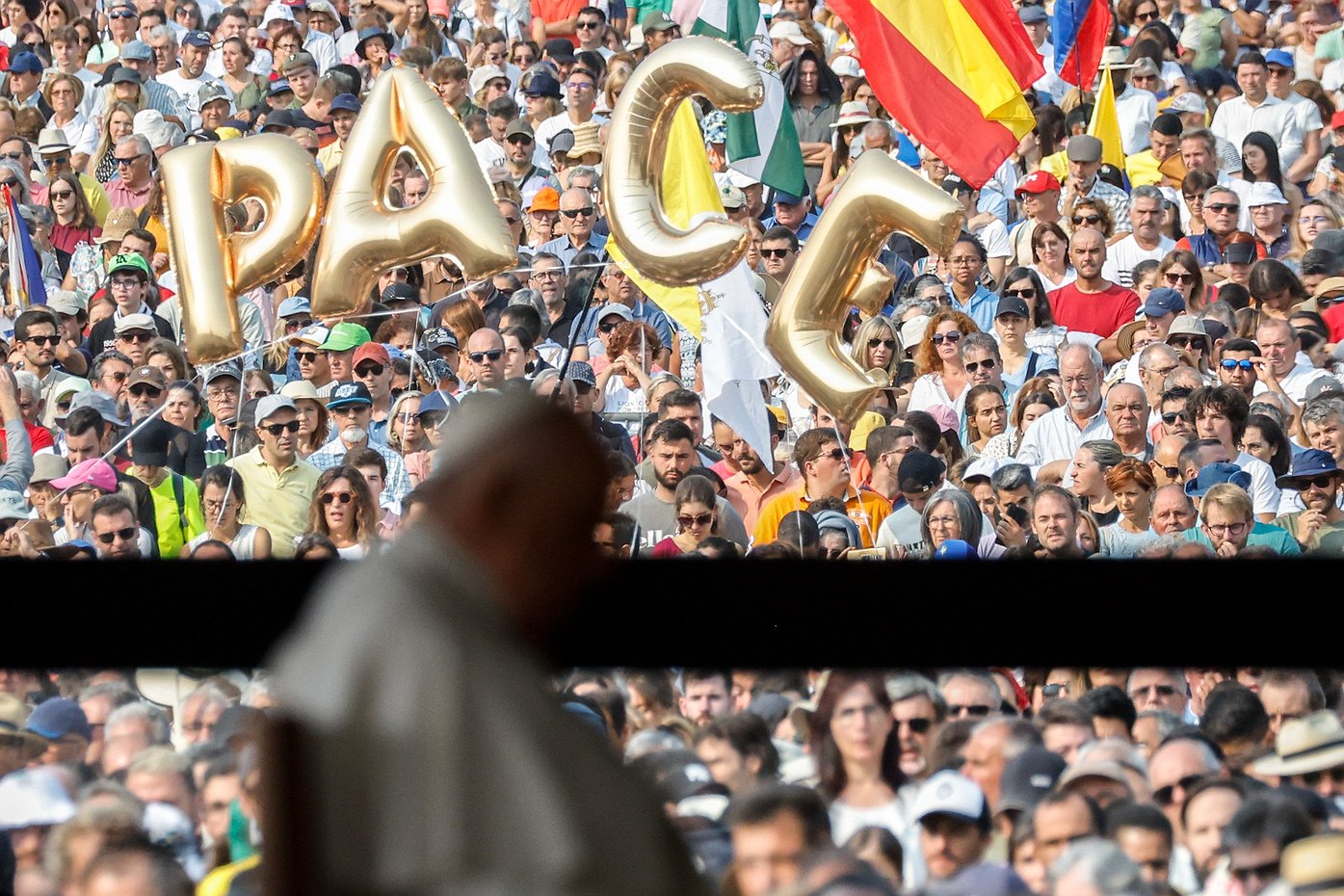Pope's peace day message to focus on ethical concerns over AI
August 8, 2023 at 12:04 p.m.

VATICAN CITY CNS – Signaling the Vatican's growing engagement in efforts to ensure the ethical development of new technologies, the Vatican has announced that "Artificial Intelligence and Peace" will be the theme for the next World Day of Peace, which is scheduled for Jan. 1, 2024.
"The remarkable advances made in the field of artificial intelligence are having a rapidly increasing impact on human activity, personal and social life, politics and the economy," the Dicastery for Promoting Integral Human Development said in a statement released Aug. 8.
"Pope Francis calls for an open dialogue on the meaning of these new technologies, endowed with disruptive possibilities and ambivalent effects," the statement said.
The Pope, it continued, "recalls the need to be vigilant and to work so that a logic of violence and discrimination does not take root in the production and use of such devices, at the expense of the most fragile and excluded; injustice and inequalities fuel conflicts and antagonisms."
The World Day of Peace was inaugurated by St. Paul VI in 1968 and is celebrated every Jan. 1, the feast of Mary, Mother of God. In recent editions, Pope Francis has used the world day to call for inclusive ways of overcoming the COVID-19 pandemic, creating dialogue between generations, promoting a culture of care and ecological conversion.
In March, the Pope met with tech industry leaders, ethicists and theologians at the Vatican to consider the ethical development of AI, and in January he addressed industry leaders from companies such as Microsoft and IBM as well as members of the Jewish and Muslim communities during a Vatican conference on ethics in AI.
At the end of the conference, Catholic, Jewish and Muslim representatives signed a declaration calling on AI researchers to engage with ethicists and religious leaders to develop a framework for the ethical use of AI.
The Vatican's Aug. 8 statement underscored that "the urgent need to orient the concept and use of artificial intelligence in a responsible way, so that it may be at the service of humanity and the protection of our common home, requires that ethical reflection be extended to the sphere of education and law."
It added that human dignity and a concern for fraternity are "indispensable conditions for technological development to help contribute to the promotion of justice and peace in the world."
In an interview with the Spanish magazine Vida Nueva released Aug. 5, the Pope said, "All these issues of Artificial Intelligence go over my head because of the complexity they are reaching," but said he is being "guided" by officials and experts working with the Dicastery for Culture and Education.
Yet, he added that "new technologies have great potential; they are a gift from God and can give good fruits, but they need to have heart, they need to be humanized."
Related Stories
Monday, December 29, 2025
E-Editions
Events
VATICAN CITY CNS – Signaling the Vatican's growing engagement in efforts to ensure the ethical development of new technologies, the Vatican has announced that "Artificial Intelligence and Peace" will be the theme for the next World Day of Peace, which is scheduled for Jan. 1, 2024.
"The remarkable advances made in the field of artificial intelligence are having a rapidly increasing impact on human activity, personal and social life, politics and the economy," the Dicastery for Promoting Integral Human Development said in a statement released Aug. 8.
"Pope Francis calls for an open dialogue on the meaning of these new technologies, endowed with disruptive possibilities and ambivalent effects," the statement said.
The Pope, it continued, "recalls the need to be vigilant and to work so that a logic of violence and discrimination does not take root in the production and use of such devices, at the expense of the most fragile and excluded; injustice and inequalities fuel conflicts and antagonisms."
The World Day of Peace was inaugurated by St. Paul VI in 1968 and is celebrated every Jan. 1, the feast of Mary, Mother of God. In recent editions, Pope Francis has used the world day to call for inclusive ways of overcoming the COVID-19 pandemic, creating dialogue between generations, promoting a culture of care and ecological conversion.
In March, the Pope met with tech industry leaders, ethicists and theologians at the Vatican to consider the ethical development of AI, and in January he addressed industry leaders from companies such as Microsoft and IBM as well as members of the Jewish and Muslim communities during a Vatican conference on ethics in AI.
At the end of the conference, Catholic, Jewish and Muslim representatives signed a declaration calling on AI researchers to engage with ethicists and religious leaders to develop a framework for the ethical use of AI.
The Vatican's Aug. 8 statement underscored that "the urgent need to orient the concept and use of artificial intelligence in a responsible way, so that it may be at the service of humanity and the protection of our common home, requires that ethical reflection be extended to the sphere of education and law."
It added that human dignity and a concern for fraternity are "indispensable conditions for technological development to help contribute to the promotion of justice and peace in the world."
In an interview with the Spanish magazine Vida Nueva released Aug. 5, the Pope said, "All these issues of Artificial Intelligence go over my head because of the complexity they are reaching," but said he is being "guided" by officials and experts working with the Dicastery for Culture and Education.
Yet, he added that "new technologies have great potential; they are a gift from God and can give good fruits, but they need to have heart, they need to be humanized."




 Artificial Intelligence: A Brief Catholic Reflection
Artificial Intelligence: A Brief Catholic Reflection







